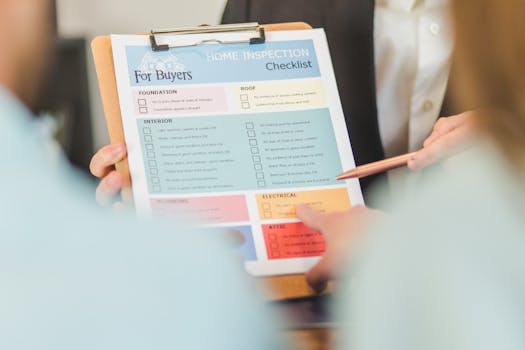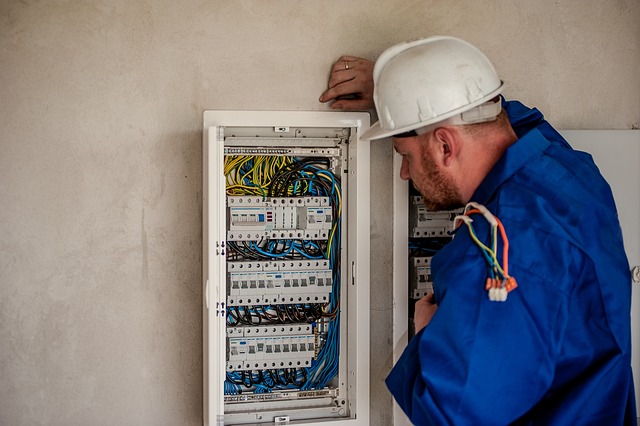As a First-time home buyer
As a first-time real estate homebuyer, the process can feel daunting and overwhelming. To help you navigate it successfully, here are ten common mistakes to avoid on your journey to homeownership


1. Not Getting Pre-Approved First
It’s tempting to skip pre-approval when you’re just starting the homebuying process. There are plenty of reasons why you might hesitate: maybe you’re still unsure about whether you’re ready to buy, you’re concerned about your credit score, or you’re simply not sure how to get started or what to ask a lender. These feelings are completely normal.
However, skipping the pre-approval step is one of the most common mistakes first-time buyers make. Getting pre-approved not only helps you understand what you can realistically afford, but it also shows sellers that you’re a serious and qualified buyer. In competitive markets, that pre-approval letter can make a big difference—and help you avoid the heartache of falling in love with a home that’s outside your reach.


2. Understanding the Total Costs
One of the biggest mistakes first-time buyers make is focusing only on the down payment. While the down payment is a major part of your purchase, it’s just one of several costs you’ll need to plan for. Buying a home involves multiple upfront expenses, and if you’re not prepared, they can catch you off guard.
Here are five key costs every buyer should know about:
-
Down Payment
This is the amount you contribute toward the purchase price. Your lender will help determine the minimum required based on your loan type, but you can often choose to put down more if you’d like. A larger down payment can sometimes help you secure better loan terms or avoid mortgage insurance. -
Escrow (Earnest Money) Deposit
Also known as “good faith money,” this deposit shows the seller you’re serious. It typically ranges from 1% to 3% of the purchase price but can be higher in competitive markets. This amount is credited toward your purchase at closing, but if you back out of the deal without a valid reason, you could lose it. -
Inspection and Appraisal Costs
Most buyers pay for a general home inspection, and depending on the property, you might need additional inspections for radon, mold, pests, chimneys, septic systems, wells, etc. These services come with individual fees. If you’re unhappy with the inspection results and decide to walk away from the deal, you usually won’t be refunded these costs—and you’ll have to pay again for new inspections on another property. -
Closing Costs
These are the fees and expenses paid at the end of the transaction, covering things like loan origination fees, title services, taxes, homeowners insurance, and more. Closing costs typically run between 2% to 5% of the purchase price, depending on your location and loan type. -
Buyer-Broker Compensation
Many buyers assume the seller pays the buyer’s agent’s commission—but that’s not always the case. You may be responsible for paying your agent directly. A good realtor can negotiate with the seller to cover this cost, and some lenders offer programs that allow this expense to be rolled into your loan. Still, it’s best to budget for it just in case and talk to your lender early to understand your options.
Bottom line: The more you know about the total costs upfront, the better prepared—and less stressed—you’ll be throughout the process. It’s always better to plan ahead than be surprised later


3. Draining All Savings on the Down Payment
Yes, making a larger down payment can help you secure a lower interest rate and reduce your monthly mortgage payments. That’s great—but not if it leaves you financially vulnerable.
You still need a cushion for unexpected expenses: emergency repairs, home maintenance, moving costs, or even just replacing furniture and appliances. It’s easy to underestimate how quickly those costs add up after you move in.
Plus, your lender will likely advise against taking on new debt during the loan process, which means you’ll want your savings intact for anything that comes up.
Bottom line: Don’t go broke trying to drop a bigger down payment. It’s smarter to strike a balance between lowering your mortgage and maintaining financial stability once you’re a homeowner.


4. Skipping The Home Inspection
Waiving the home inspection might seem like a way to speed up the buying process or make your offer more competitive—but it’s a risky move that can end up costing you far more than the inspection fee itself.
A qualified home inspector will evaluate the property’s major systems and structural elements, including the electrical, plumbing, roof, attic, foundation, and more. Their job is to uncover hidden issues that may not be visible during a casual walkthrough.
While inspections can be an added expense upfront, they provide crucial information that can help you negotiate repairs, ask for seller credits, or walk away from a bad deal entirely.
Think of the home inspection as a key building block in protecting your investment. It gives you peace of mind—and possibly thousands of dollars in savings down the road.


5. Letting Emotions Drive the Decision
Buying a home is deeply emotional. It’s the place where your dreams will grow, where your family will be cared for, where you might launch a business or create a sanctuary of your own. It’s natural to feel attached.
But here’s the truth: it’s not your home until settlement is complete.
Getting too emotionally invested too early can cloud your judgment and weaken your negotiating power. You might overlook serious flaws, stretch your budget, or rush through important steps just to “lock it in.”
Save your energy—and your excitement—for when the ink is dry. That’s when you can truly celebrate, cry happy tears, and dance in your new living room knowing it’s officially yours.


6. Ignoring the Neighborhood
You can change the house—but not its location. One of the biggest mistakes buyers make is focusing solely on the home and overlooking the neighborhood.
Before making an offer, take time to research the school districts, commute routes, local amenities, and overall safety. Think about your lifestyle: Do you want to be close to parks, shops, or public transportation? Are there upcoming development plans that could impact the area’s value or livability?
Many county or city websites offer tools to research neighborhood trends, zoning changes, nearby industries, and even infrastructure like power plants or water treatment facilities. These details matter.
In some areas, you may not be able to avoid things like subways, train tracks, or flight paths—so it’s important to know in advance whether those elements will be a deal-breaker for you.
Bottom line: Know the area before you fall in love with the house.


7. Making Big Financial Moves Before Closing
That shiny new car? The dreamy furniture set for your future living room? A well-deserved vacation to decompress from the stress of homebuying? All tempting—but making major financial changes before closing on your home is a big mistake.
Opening or closing credit cards, making large purchases, or even changing jobs can trigger red flags with your lender. These moves can affect your credit score, debt-to-income ratio, or employment verification—potentially jeopardizing your mortgage approval even at the last minute.
Worse yet, if your loan falls through because of these changes, it may delay your homeownership goals and leave you starting over. Recovery can take time, emotionally and financially.
Protect your peace of mind: wait until after closing to make big financial decisions. You’ll thank yourself later.


8. Not Understanding The Mortgage Terms
or Being Afraid to Ask
Not fully understanding your mortgage terms—or being too afraid to ask questions—can be a costly mistake. Your lender is there to help, and a good one will take the time to explain everything until you feel confident and informed.
Yes, it’s important to know your loan type, interest rate, and loan term, but don’t stop there. Ask the deeper questions:
-
Is my interest rate fixed or variable?
-
Is there a prepayment penalty?
-
Will I owe a balloon payment at any point?
-
Can I make extra payments toward the principal without a fee?
-
Are there options to shorten the life of my loan?
Asking these questions empowers you to make smarter financial decisions—not just for now, but for the long term. Don’t be shy or feel intimidated—this is your money, your home, and your future. The more you understand, the better positioned you are to protect it.


9. Skipping a Final Walkthrough
No bueno. Skipping the final walkthrough is a risky move—especially if you negotiated repairs or there were HOA violations noted in the disclosure packet.
The final walkthrough is your last chance to verify that the home is in the condition you agreed upon before closing. You’ll want to make sure all systems (like plumbing, electrical, and HVAC) are functioning properly, any negotiated repairs have been completed to standard, and that no new issues have popped up since your last visit.
It’s also the time to check that appliances are still in place, nothing was damaged during move-out, and the home is free of trash or unwanted items.
Bottom line: Don’t assume everything is fine—see it with your own eyes before you sign on the dotted line.


10. Not working with A Real Estate Agent
Many buyers believe they’ll save money by skipping a real estate agent and negotiating directly with the seller. It might seem like a more efficient or cost-effective route—but that’s rarely the case.
A good buyer’s agent doesn’t just help you find a home—they guide you through every step of a complex process that includes legal disclosures, contractual clauses, timelines, negotiations, inspections, and more. Buying a home involves signing legally binding agreements filled with terms written in legal language—and misunderstanding even one of them can cost you thousands.
Your agent is also your advocate, sounding board, and problem-solver when the stress of the process starts to wear you down. From the moment you decide to incorporate the services of a buyer’s agent, through the first showing, all the way to post-settlement check-ins, buyer’s agents often perform over 100 individual tasks behind the scenes to protect your interests.
Bottom line: A knowledgeable realtor isn’t an extra expense—they’re an investment in your peace of mind, legal protection, and long-term financial success.


